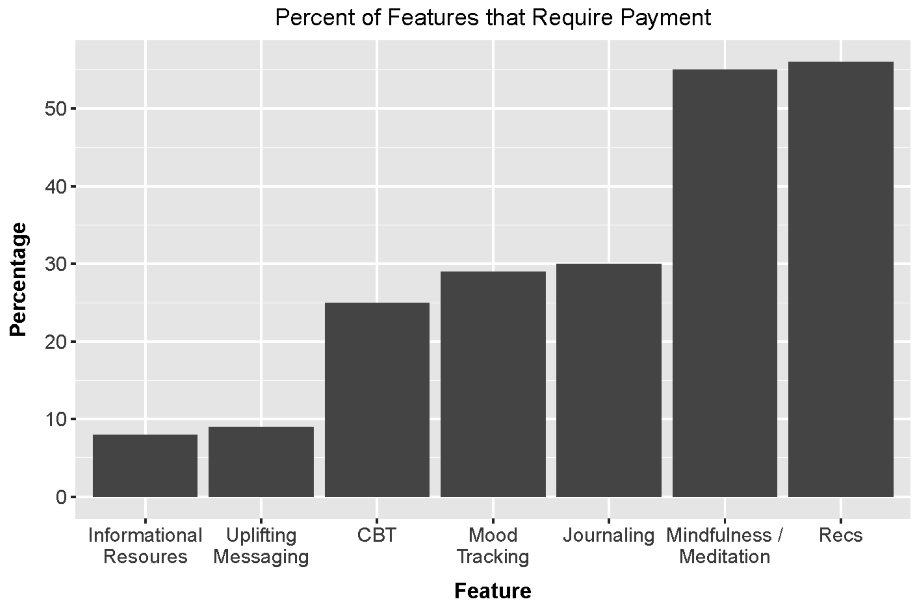Mental Health App Content Analysis
Project Year: 2019-2020, Conference Paper
Background
Mental Health and App-Based Treatment
- Mental health mobile apps have proliferated as diagnoses increase -> estimated to be over 20,000 apps available
- There is a need and want for alternatives to traditional treatment
- Informed decisions around mental health apps require external information sources
Many apps utilize freemium payment models
- Combination of free and paid features concerned with converting free users to paying subscribers
Freemium apps may:
- Offer limited functionality, pay for advanced features
- Have limited-duration free trials
- Place limits on free versions (e.g., usage caps)
- Allow users to pay to improve their user experience, e.g., by removing advertisements
Project Goal: Examine whether common freemium payment practices in popular mental health apps have negative outcomes for users based on user review analysis
Research Questions:
- What negative user outcomes can result from mental health apps that utilize freemium payment models?
- What sub-types of mental health apps use freemium strategies, and what features are most commonly charged for?
Methods used: Competitive Analysis, Content Analysis
- Identified 41 highly downloaded apps through keyword search on Google Play Store
- Downloaded 41k reviews (~1000/app) left by users (Half positive/neutral reviews (3-5 stars) and half negative (1-2 stars))
- Developed a codebook around self-described negative user outcomes resulting from freemium app design
Reviews coded for negative themes after consensus process

Results
~80% of apps utilized a freemium model
- This restricted free access to a subset of basic features
- This also limited the duration of free features
- Thematic analysis of 41k reviews yielded 1825 negative outcome examples across 41 apps (4.3% of the 41K reviews)
Analysis of first-person experiences indicates negative outcomes result from:
- Unclear descriptions of functionality and charging practices
- Partial diagnoses/treatments/data
- Impaired app performance
Potential Solutions
- Regulators could encourage more accurate app descriptions
- Offer criteria for ethical freemium app design
- Our findings indicating that Restricted Functions and Limited-Term Offers generate more negative outcomes, should lead designers to exercise caution when deploying this approach
- Continual improvement of professional app audits (e.g., ORCHA (Organization for Review of Care and Health Applications), ADDA (Anxiety and Depression Association of America), PsyberGuide, M-Health Index and Navigation Database (MIND))
